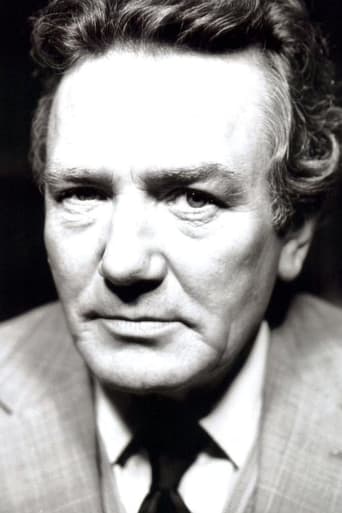Solidrariol
Am I Missing Something?
Brendon Jones
It’s fine. It's literally the definition of a fine movie. You’ve seen it before, you know every beat and outcome before the characters even do. Only question is how much escapism you’re looking for.
Sabah Hensley
This is a dark and sometimes deeply uncomfortable drama
Living the Wholesome Life
I loved this movie! I am so thankful for people like William Wilberforce who see wrongs in society and do whatever it takes to right them. Talking points - How did William Wilberforce help change our world for the better? If you knew you could succeed what causes would you embrace and champion? What can you do to fight for a cause you believe in this year?Warning - Unfortunately there are some very low-cut dresses in this film. It's not a big part of the film, but it is there. If this movie just didn't have that I would have rated it a 10.
VaneWimsey
How can you not root for William Wilberforce? He's against slavery! He's kind to animals! He loves his hot girlfriend! So the narrative does manage to carry you along. You might even shed a tear or two.For me, though, it was an uphill battle. The timeline jumps around wildly. At one point, it's explicitly said to be 1797, but after that, I could never keep it straight; some scenes seem to be flashbacks, but don't quote me. Also, characters aren't introduced properly.I'm not an evangelical Christian (in fact, I'm Jewish), but the film doesn't do justice to this aspect of Wilberforce's character. It was central to his life and to his abolitionist mission, but the movie reduces it to a sort of animist blithering about the beauties of nature.And it's full of historical howlers. A royal duke (the Duke of Cumberland) sitting in the House of Commons? "Lord" Charles Fox?!? It's a shame that the screen writing was so sloppy, because the costuming and set decoration are meticulously well-researched. The acting is also quite good. Weak though the script is, the cast manages to bring it to some semblance of life. I don't quite understand, however, why they took the trouble of casting an actor to play Pitt who looks uncannily like him, while the actors who play the other characters (including Wilberforce and Fox) look nothing like the originals at all.
James Hitchcock
Michael Apted is a versatile director who has made some very different films in a number of different genres, including biopics ("Gorillas in the Mist"), neo-noir ("Gorky Park") and action thrillers ("The World Is Not Enough"). Some of his films, such as "Nell", resist classification by genre. With "Amazing Grace" he returns to the "heritage cinema" genre, having earlier made other period dramas such as "Agatha" and "Enigma". It is a biography of William Wilberforce, who led the campaign against the slave trade in Britain in the late 18th and early 19th century. The title refers to the well-known hymn written by John Newton, another member of the anti-slavery movement. The film is set during the period between 1782, when Wilberforce presented his first anti-slavery bill to the House of Commons, and 1807, when legislation outlawing the slave-trade was finally passed. (Slavery itself, however, remained legal in British colonies until the 1830s). The film also deals with Wilberforce's personal life, including his battle against ill-health and his romance with and eventual marriage to Barbara Spooner. It went on general release on February 23, 2007, the 200th anniversary of the date the British parliament voted to pass the Slave Trade Act.In my view Apted's films vary widely in quality as well as in genre, "Nell" being one of the best films of the last couple of decades and "Enough" one of the worst. "Amazing Grace" is somewhere near the middle of this scale. It is not as good as "Nell" or "Gorillas in the Mist", but far better than the awful "Enough" or the dull "Agatha". It is a handsome, well-made costume drama which gives a good picture of life during the period in which it is set, although there are a few errors. (The Duke of Clarence (the future King William IV), for example, did not sit in the House of Commons (as he is shown doing here), but in the House of Lords). Ioan Gruffudd is excellent in the leading role, as are Albert Finney as Newton, Michael Gambon as Wilberforce's ally, the wily Charles James Fox, and Benedict Cumberbatch as the equally devious Prime Minister William Pitt. Although Pitt is sympathetic to the anti-slavery cause, for political reasons he is unable to attack the trade publicly. (The system of political patronage and rotten boroughs which prevailed at the time meant that many Members of Parliament were in the pockets of those with vested interests in the slave-trade). Pitt therefore uses Wilberforce as his public mouthpiece.Nevertheless, I felt that the film has something missing. It gives the impression that slavery was something to be discussed in the abstract by a group of well-to-do white politicians sitting in London. There is only one black character in the film, the former slave Olaudah Equiano, and there are no scenes which show the reality of slavery or the slave-trade. There is a brief reference to a slave revolt in Haiti, but this is the only recognition of resistance to slavery among the slaves themselves.This objection goes further than mere political correctness, which is doubtless how some will dismiss it. It would have made for a better film had it showed not merely the Parliamentary campaign against the evils of slavery but also something to indicate why that campaign needed to be fought. Wilberforce's ally Newton had himself been the captain of a slave ship before he underwent a religious conversion and became an ordained priest in the Anglican Church. As shown in the film, he was to be haunted throughout his long life by guilt over the part he had played in the slave trade. I couldn't help thinking, in fact, that his life might have made the basis of a more dramatic film than Wilberforce's.Apted said that he did not set out to make another film such as "Amistad" or "Roots". I will not attempt to compare a feature film like "Amazing Grace" with a television series such as "Roots", but I felt that if Apted had indeed set out to make a film more like "Amistad", which deals with both the white abolitionist movement and with the black victims of slavery, the end result might have been better. 7/10
wrs10
Looks like, according to others, that this film was made in the old Hollywood tradition of never letting the facts stand in the way of a good story. No matter, it captures the atmosphere of the struggle in spirit and if it spurs one to use Google to learn the details properly so much the better.The film fails to explain a few details, such as why his proposal was passed nearly unanimously in 1807, nearly passed 20 years earlier - but nothing much in between. Answer - war, or the immediate threat of war, with French resulting in the Battle of Trafalgar in October 1805. The film did explain that any British withdrawal from the trade would just allow the French and others to fill the resulting vacuum. No gain there but after the French and Spanish fleets were destroyed n 1805 there was no chance of any vacuum being created. The potential costs of banning the trade dropped sharply.Again, the film was a bit vague about distinguishing between abolishing the trans-Atlantic trade in slaves and abolishing slavery itself in the West Indies. That took another generation and another revolution - the railways - to enable that.The struggle for Parliamentary Reform had been going on just as long. It had been opposed as being a risk too far - look at what happened during the French Revolution. However in 1830 a railway between Manchester and Liverpool was opened. A few months later a riot broke out near the line in Liverpool. Word was passed to an army barracks, also near the line, on the outskirts of Manchester. A train was commandeered, filled with troops and sent rapidly on its way to Liverpool. The troops delivered, riot cleared - all within 2 hours!!! A year earlier it would have taken 2 days!!! With the balance of power shifting so sharply in favour of the forces of order resistance to Parliamentary Reform weakened so much that it was finally achieved by 1832 - and the new Parliament finally voted for the abolition of slavery itself in 1833 (although it took a few years to be fully rolled out). Cause and effect.(Trivia: The Duke of Clarence depicted in the film had his mistress housed in the same road that Boris Karloff was born. Is that why so many cinematic liberties were taken with his character?)





